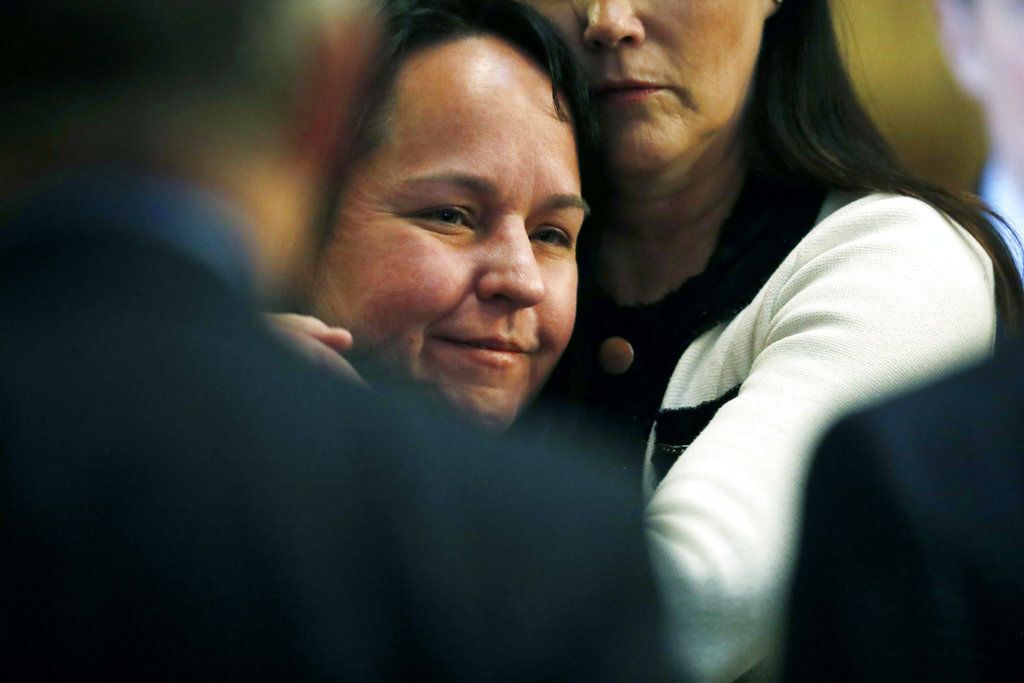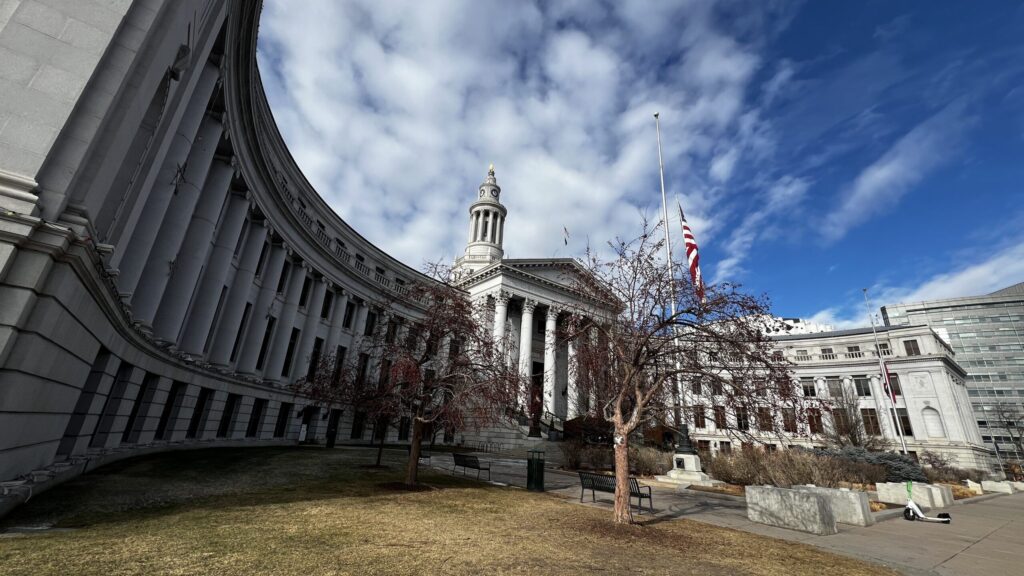Colorado lawmakers propose two measures to address vacancy process in General Assembly
Two measures introduced in the state House on Monday aim to address the issue of how vacancies in the General Assembly are handled. However, both approaches take very different paths to solving the problem.
Last year, Rep. Bob Marshall, D-Highlands Ranch, sponsored a concurrent resolution that would amend the state constitution to prohibit lawmakers chosen through the vacancy process from running for the next term in that office.
House Concurrent Resolution 24-1004 won a bipartisan 7-4 vote from the House State, Civic, Military and Veterans Affairs Committee but died on the House floor awaiting a second reading debate.
Marshall is reviving that proposal for the 2025 session with HCR 1002, although he’s less optimistic about a better result.
Marshall stood alone on the 2024 measure, not even a Senate sponsor. But in the wake of Senate resignations last December, more lawmakers are taking an interest, he told Colorado Politics. As a result, Marshall has 14 co-sponsors on his 2025 effort, and Sen. Marc Snyder, D-Manitou Springs, is carrying the measure in the Senate.
However, Marshall is skeptical that it will receive the same reception from the State Affairs Committee as it did last year, given the committee’s shift to the more progressive left.
The current process for filling a vacancy at the state Capitol involves a political party’s vacancy committee appointing a replacement, who serves until the next general election, regardless of whether that election is one year away or longer. Candidates can raise and spend funds for the seat without having to file candidacy or fundraising reports with the Secretary of State’s campaign finance system. Vacancy committees are composed of party insiders, including precinct committee people, state lawmakers who reside in the district, and central committee members.
House districts represent approximately 89,000 residents, while Senate districts have around 165,000. Vacancy committees can be as small as a handful but generally no more than 100. And unaffiliated voters, who make up almost 49% of voters, more than major political parties, are shut out of the process entirely.
The second measure refurbishes the vacancy process and adds a special election under limited circumstances. It also addresses some of the issues around campaign finance and unaffiliated voters.
House Bill 1315 is sponsored by Rep. Emily Sirota, D-Denver and House Minority Leader Rose Pugliese, R-Colorado Springs. It also has bipartisan sponsorship in the Senate.
The heart of the measure is in how it handles vacant elections.
• If a lawmaker resigns during the session or by July 31 in an even-numbered year, the new vacancy committee process will be initiated, and the selected candidate will then run in the customarily scheduled general election in November.
• If a lawmaker resigns after July 31 in an even-numbered year, the vacancy would be filled first by the vacancy committee. Then, a vacancy election would be held in the following odd-year November election.
• If a lawmaker resigns during the session or by July 31 in an odd-numbered year, the new vacancy committee process would fill the seat until a vacancy election can occur in November of that year.
• If a lawmaker resigns after July 31 in an odd-numbered year, a new vacancy committee would be formed to fill the seat until the next general election in the following even-numbered year.
In the odd-numbered year election, only voters from the same political party as the resigned lawmaker, or unaffiliated voters, would be allowed to vote.
The process of becoming a candidate also would change, requiring candidates to obtain signatures from either 30% of the vacancy committee or 200 voters from the same party.
Regarding campaign finance, the bill establishes contribution limits for candidates running in special elections or vacancies. It requires disclosures for contributions to be filed on Mondays of each week while the vacancy process is underway.
Sirota told reporters on Tuesday that the intent is for a vacancy-appointed lawmaker to serve only one session before going to a vote of the people; currently, a lawmaker can serve up to two terms if they are appointed before the session starts or shortly after it begins.
Regarding holding unique vacancies in November, Sirota explained that there are statewide elections every year, so it wouldn’t require extra money to conduct the election that a special election outside of November would necessitate.
She acknowledged that the process outlined in her bill is complicated but believes it will lead to increased voter participation.
HB 1315 has the support of the state Democratic Party Chair Shad Murib, who told Colorado Politics that he was glad lawmakers had responded to calls for reform.
“This legislation strengthens our democracy by making the vacancy process more transparent, accountable, and accessible to voters while also shining a light on the money being raised and spent by candidates,” Murib said in a statement. “With these reforms, we are reinforcing the trust Coloradans place in their elected officials and their democracy.”
Marshall is fuming over the Sirota bill, in part because it was introduced on the same day as his bill. “If one is not a complete fool, it is easy to read between the lines and see this as an effort to do cosmetic reform and put lipstick on a pig, with both parties conspiring against Colorado’s citizens to ensure their continued grip on power by insiders. This bill simply ensures that voters continue to only be allowed to ratify the decision of the small party insider groups, rather than people having an open fair election [and] without a predetermined party insider placed into the seat as an incumbent.”
He also complained that his cosponsor, Rep. Larry Sucka, R-Cortez, is being pressured to come off his resolution.
The current General Assembly has 22 members who got their seats through the vacancy process. That’s down from 29 the previous year.
The 22 includes five lawmakers who gained their current seats through vacancies this year, four in the Senate and one in the House.
In 2024, two Democratic lawmakers — Sens. Chris Hansen of Denver and Janet Buckner of Aurora — resigned their seats in the state Senate after winning re-election just a month prior. Sen. Kevin Van Winkle, R-Highlands Ranch also resigned in December, halfway through his first Senate term, after winning a seat in November on the Douglas County Board of County Commissioners.
All three had benefited from the vacancy process, obtaining their seats in the General Assembly at some point in their legislative careers.
Colorado is one of just five states that uses the vacancy process; other states rely on special elections or appointments by the governor.
Colorado Politics Must-Reads:











